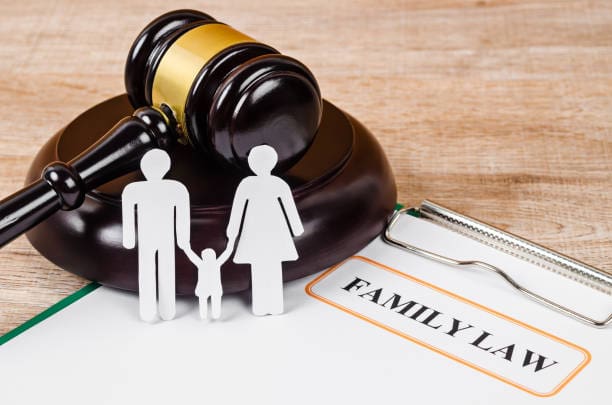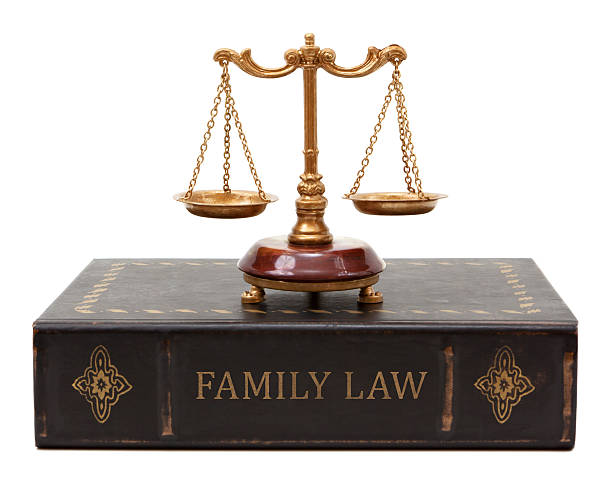This article will discuss the jurisdiction for the person of a child (Part XIIIAA, Division 4, Subdivision B) in the Family Law Act 1975. Children are of paramount importance in family law matters in Australia. Under the Family Law Act, the court must consider various factors to determine what is in the child’s best interests. This includes the child’s:
- Relationships with each parent and other significant people
- Views and wishes
- Physical, emotional and psychological needs; and
- Capacity of each parent to provide for the child’s needs.
Read on to know more about the jurisdiction of the person of a child.
Section 111CC: Application Of Jurisdiction for the Person of a Child
Subdivision B applies if the issue in question is whether a court has jurisdiction to take measures for the protection of a child. This is as opposed to other authorities such as:
- Central authorities and competent authorities of Convention countries: These are entities under international treaties, such as the Hague Convention on the Civil Aspects of International Child Abduction. The Hague Convention facilitates the return of abducted children and protects the interests of children in cross-border disputes.
- Competent authorities of non-Convention countries: These are similar authorities that the countries that are not party to the Hague Convention have established.
Section 111CD: Jurisdiction Relating to the Person of a Child
Section 111CD of the jurisdiction for the person of a child outlines the circumstances under which a court in Australia can exercise jurisdiction for a Commonwealth personal protection measure for a child. The section specifies that a court can exercise jurisdiction for such a measure only if:
- The child is present and habitually resident in Australia; or
- The child is present in Australia and habitually resident in a Convention country
A court can also exercise jurisdiction for such a measure only if:
- The child’s protection requires taking the measure as a matter of urgency
- The measure is provisional and limited in its territorial effect on Australia
- The child is a refugee child; or
- There is a request to assume jurisdiction by a competent authority of the child’s habitual residence; or
- The competent authority of the child’s habitual residence agrees to the court assuming jurisdiction.

Section 111CD: Children Present in Convention Countries
It states that a court can exercise jurisdiction for a child present in a Convention country, if:
- The child is habitually resident in Australia; or
- The child faces wrongful removal from or retention outside Australia and the court keeps jurisdiction under Article 7 of the Child Protection Convention
Additionally, the court can exercise jurisdiction for a child present in a non-Convention country if:
- The child is habitually resident in Australia, and
- Any of paragraphs 69E(1)(b) to (e) applies to the child.
Section 111CD also specifies that a court can only exercise jurisdiction in certain circumstances, including if:
- One or both of the child’s parents are habitual residents in Australia when the proceedings begin
- One or both of the parents have parental responsibility for the child
- The jurisdiction of the court to take the measure is accepted by the parents and each other person with parental responsibility for the child; and
- The exercise of jurisdiction to take the measure is in the best interests of the child.
Finally, the section states that paragraphs 111CD(1)(a) to (d) are subject to the limitations in sections 111CE, 111CF, and 111CH. We’ve explained more below.
Section 111CE: Limitation When a Child Is Wrongfully Removed From or Retained Outside a Convention Country
Section 111CE of the jurisdiction for the person of a child states that a court cannot exercise jurisdiction under paragraph 111CD(1)(a), (b), (c) or (d) to take a Commonwealth personal protection measure relating to a child if two conditions are met. These are:
- 1. First condition: The child faced wrongful removal from or retention outside a Convention country.
- 2. Second condition: An authority of the Convention country has already taken jurisdiction under Article 7 of the Child Protection Convention.
Section 111CF: Limitations When Prior Proceedings Pending in a Convention Country
Section 111CF of the jurisdiction for the person of a child pertains to the jurisdiction of a court in relation to taking a Commonwealth personal protection measure concerning a child. It states that if a corresponding measure has been requested from a competent authority of a Convention country at the time of the proceedings before the court, and certain conditions are met, the court must not exercise jurisdiction to take the measure. The conditions are as follows:
- The child is habitually resident in the Convention country or present in the Convention country as a refugee child.
- A request to assume jurisdiction is made to the competent authority of the Convention country by or at the invitation of a competent authority of the country of the child’s habitual residence or country of refuge.
- A competent authority of the country of the child’s habitual residence or country of refuge agrees to the competent authority of the Convention country assuming jurisdiction.
- The competent authority of the Convention country is already exercising jurisdiction in proceedings concerning the divorce or separation of the child’s parents or the annulment of their marriage.
- The child has been wrongfully removed from or retained outside the Convention country, and a competent authority of the Convention country keeps jurisdiction under Article 7 of the Child Protection Convention.
Note: This section does not apply if the competent authority of the Convention country has declined jurisdiction or is no longer considering taking the measure sought.
Section 111CG: If a Court Is Asked to Assume Jurisdiction
Section 111CG of the jurisdiction for the person of a child pertains to a court’s ability to accept or reject a request made by a competent authority of a Convention country under Article 8 of the Child Protection Convention.
The request is for the court to assume jurisdiction to take a Commonwealth personal protection measure relating to a child. The court may accept or reject the request based on whether it deems it to be in the child’s best interests.
The court has the authority to order or request the parties involved in the proceedings to ask the Commonwealth central authority to make a request to a competent authority of a Convention country. The request is for the court to assume jurisdiction to take a Commonwealth personal protection measure concerning the child. This is covered by Article 9 of the Child Protection Convention.
The court may only make this order or issue the invitation if it determines that it is better equipped to assess the child’s best interests than the competent authority. The Commonwealth central authority is also responsible for reporting the outcome of the request to the court.
Section 111CH: Limitation if a Competent Authority of a Convention Country Is Asked To Assume Jurisdiction
Section 111CH of the jurisdiction for the person of a child outlines the powers of the court in relation to requests made under Articles 8 and 9 of the Child Protection Convention. The court may order or invite parties in the proceedings to ask the Commonwealth central authority to request a competent authority to assume jurisdiction to protect the child’s person and take necessary measures to protect them.
The competent authority must then report to the court on the outcome of the request. The court may make any other necessary orders to enforce this. However, the court can only do this if it considers the competent authority is better placed to assess the child’s best interests.
If the competent authority assumes jurisdiction, the court cannot exercise jurisdiction while the competent authority continues to exercise its jurisdiction.
Section 111CI: When a Certain Commonwealth Personal Protection Measure Lapses
Section 111CI of the jurisdiction for the person of a child outlines when a Commonwealth personal protection measure relating to a child will lapse if certain conditions are met. The measure lapses if a foreign personal protection measure relating to the child is taken by a competent authority of a Convention country, and any of the following applies:
- The child is habitually resident in the Convention country;
- The child is present in the Convention country and is a refugee child;
- A request to assume jurisdiction is made to the competent authority of the Convention country by, or at the invitation of, a competent authority of the country of the child’s habitual residence;
- A competent authority of the country of the child’s habitual residence agrees to the competent authority of the Convention country assuming jurisdiction;
- A competent authority of the Convention country is exercising jurisdiction in proceedings concerning the divorce or separation of the child’s parents or the annulment of their marriage; or
- The child has been wrongfully removed from or retained outside the Convention country and a competent authority of the Convention country keeps jurisdiction under Article 7 of the Child Protection Convention.
Additionally, a Commonwealth personal protection measure will lapse if it a court takes it in a case of urgency, or in the taking of a measure of a provisional character, and a measure required by the situation for protecting the person or the child is taken by a competent authority of a non-Convention country, and the measure is registered in accordance with regulations or a law of a State or Territory.

Importance of Seeking Legal Advice
It is generally important to seek legal advice regarding jurisdiction for a child’s personal protection measure. This is the case especially if it involves multiple countries or jurisdictions. Laws and regulations regarding child custody, protection, and welfare can vary widely from one jurisdiction and can be very complex.
JB Solicitors can help you understand your legal rights and obligations. Our team can also explain the relevant laws and procedures, and assist you in navigating the legal system. This way, you can achieve the best possible outcome for yourself or for your parenting matters. We have mediation and arbitration matters.
Contact us today if you want more information on the jurisdiction for the person of a child.
